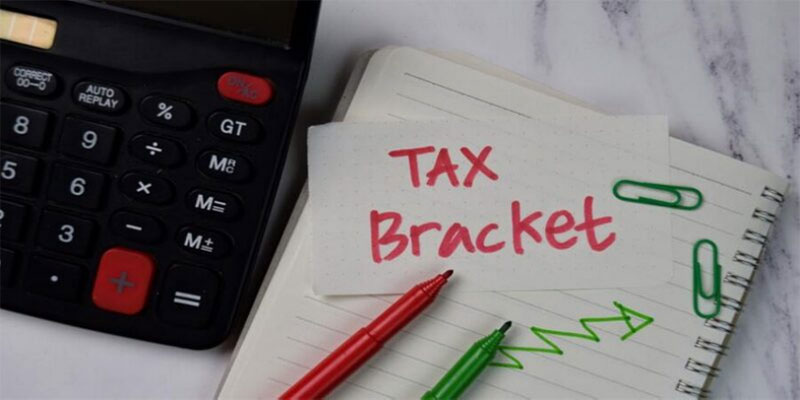These Tax Brackets Will Be In Effect For The Federal Income Tax This Year
Apr 17, 2023 By Triston Martin
The federal government collects income tax from individuals, businesses, and other organizations. Taxable income is the amount left over after subtracting certain deductions and exemptions. The government taxes a higher proportion of one's income in the United States as one's wage increases since the country uses a progressive tax system. This article examines the retirement tax brackets for the upcoming year of 2019. Income thresholds used to determine tax brackets must be regularly reassessed to account for inflation. The federal income tax for 2023 is segmented into seven brackets with corresponding rates ranging from 10% to 37%. Planning and familiarizing oneself with federal income tax rates and other tax-related concepts might help taxpayers pay less.
What Are The Federal Income Tax Brackets?
The income thresholds at which various federal income tax rates apply are referred to as "federal income tax brackets" in the United States. In the United States, we have a progressive tax system, which means that the rate of taxation increases as one's income does. From 10% to 37%, seven trust tax brackets have been added. A person's tax rate is only applied to the portion of their income that falls into their tax bracket. The first $9,950 of a taxpayer's income would be taxed at 10%, the next $30,950 at 12%, and the last $20,525 at 22.0%, for a total tax bill of $50,000.
The 2023 Federal Income Tax Brackets

The income levels for each new tax brackets have been adjusted upward for 2023. For the year 2023, the following are the federal income tax brackets:
- If your taxable income is less than $10,275 (or $20,550 if you're married filing jointly) or $13,050 (if you're a head of household), your tax rate will be 10%.
- If your annual taxable income is more than $10,275 but less than $42,500, $85,000 if you're married filing jointly, or $54,200 if you're a head of household, you'll be subject to a rate of 12%.
- If your taxable income is more than $42,500 but less than $86,000, $172,000 if you're married filing jointly, or $86,100 if you're a head of household, you'll pay a rate of 22%.
- Taxable income over $86,000 is subject to a 24% rate for single filers, $329,800 for married filers filing jointly, and $164,900 for those filing as heads of household.
- If your taxable income is more than $164,900 but less than $209,425 as a single filer, $418,850 as a married filing jointly taxpayer, or $209,425 as a head of household, your tax rate will be 32%.
- Taxable income exceeding $209,425 is subject to a 35% rate ($523,600 for single filers, $628,300 for married filers, and $418,850 for those filing as heads of household).
- Incomes exceeding $523,600 for single taxpayers, $628,300 for married filers filing jointly, and $523,600 for those filing as heads of household are subject to a 37% tax rate.
- Remember that these are marginal tax rates only apply to the corresponding income thresholds. For a single taxpayer with a taxable income of $50,000, for instance, the tax rate is 10% on the first $10,275, 12% on the income between $10,275 and $42,500, and 22% on the remainder.
Personal Exemption And The Standard Deduction

Taxpayers may lower their taxable income by using deductions and exemptions in addition to the income tax rates. The standard deduction has gone raised a little for the 2023 tax year:
- $12,950 for those who are unmarried or who are filing a separate tax return.
- The standard deduction for a married couple or an eligible widower is $27,400.
- The average income for a single parent in the United States is $19,450.
- The individual income tax exemption was eliminated by the tax reform bill of 2017. There are, however, credits and deductions that individuals may use to lower their overall tax bill.
Conclusion
You must know how the federal income tax brackets work to file your taxes correctly. Since the dollar's purchasing power fluctuates from year to year, it pays to familiarize oneself with the tax rates in effect in the present. Taxpayers have additional options for reducing their tax burden beyond the various tax rates available. For the tax year 2023, the government has raised the standard deduction and done away with personal exemptions. To ensure you're getting all the tax breaks, it's important to go through all the possibilities for deductions and credits. You can better manage the tax system and reduce your tax bill if you understand the various federal income tax rates and other tax-related topics.





